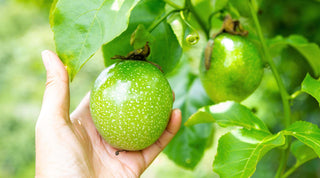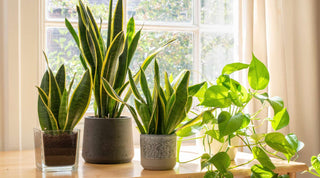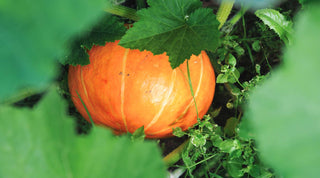In the realm of gardening, the allure of exotic herbs and spices is undeniable.
They bring a touch of the global gourmet into our backyards and kitchens, offering a palette of flavors and aromas that can transform the mundane into the extraordinary. As gardening enthusiasts seek to broaden their horizons, the cultivation of exotic herbs such as ginger, turmeric, saffron, and Sichuan pepper is gaining momentum. This movement isn't just about adding diversity to the garden; it's about enriching our culinary experiences and embracing the myriad health benefits these plants offer.
Exotic Herbs and Spices
Ginger (Zingiber officinale) is more than just a root; it's a versatile plant that can be grown in containers or garden beds, provided it has a warm, sheltered spot. Ginger thrives in partial shade and moist, rich soil. Starting ginger from a fresh root piece, look for one with well-developed growth buds or 'eyes.' Plant it in early spring, and with minimal care, you'll have your own fresh ginger by the fall. Apart from its culinary uses, ginger is renowned for its medicinal properties, offering digestive relief and anti-inflammatory benefits.
Turmeric (Curcuma longa), a close relative of ginger, is prized for its vibrant yellow color and numerous health benefits, including anti-inflammatory and antioxidant properties. Turmeric requires a warm climate and can be grown similarly to ginger, in pots or the ground, provided it gets plenty of warmth and moisture. The plant's leaves are also edible, adding a unique flavor to salads and dishes.
👉 Seeds we Like: Tumeric Transplants
Saffron (Crocus sativus), known as the most expensive spice in the world, is surprisingly easy to grow. The key to successful saffron cultivation lies in acquiring high-quality corms and planting them in well-drained soil with plenty of sunlight. The flowers bloom in the fall, and the saffron threads are harvested from the stigmas of the blooms. Though it requires patience and a bit of labor to collect the saffron, the reward of harvesting your own is unparalleled.
👉 Seeds we Like: Saffron Bulbs
Sichuan Pepper (Zanthoxylum spp.) is not a true pepper but a citrus relative, known for its unique numbing sensation on the palate. Growing Sichuan pepper is a long-term investment, as it can take several years for the plants to mature and produce the prized berries. However, the plant itself is quite ornamental, with fragrant leaves and attractive bark, making it a dual-purpose addition to the garden. It prefers well-drained soil and can tolerate partial shade to full sun.
Top Benefits of Growing Exotic Herbs and Spices
-
Culinary Exploration: Homegrown exotics open up a world of culinary possibilities, allowing you to experiment with authentic, fresh flavors that can elevate your cooking.
-
Health and Wellness: Many exotic herbs and spices are loaded with health-promoting properties, offering natural ways to support your well-being.
-
Sustainability: Growing your own reduces the need for imported spices, which often come with a hefty carbon footprint due to transportation and packaging.
-
Economic Savings: Cultivating your own saffron or ginger, for example, can be cost-effective over time, given the high market prices of these spices.
- Gardening Satisfaction: There's a unique joy in successfully growing something uncommon, adding an element of challenge and reward to your gardening endeavors.
Getting Started
Begin your exotic herb and spice garden by researching the specific needs of each plant you wish to grow. While some, like ginger and turmeric, are well-suited to container gardening and can be grown in cooler climates indoors, others may require more space or specific conditions only achievable in certain regions. Start small, perhaps with one or two varieties, and gradually expand as you gain confidence and experience.
Embracing the cultivation of exotic herbs and spices not only enriches your garden but also your dining table, offering fresh, vibrant flavors that reflect the diversity of global cuisines. As you delve into this rewarding gardening niche, you'll discover a new world of tastes and aromas that can transform your culinary creations.
The journey of cultivating exotic herbs and spices doesn't stop at the harvest. It extends into your kitchen, where these fresh ingredients take center stage in dishes that intrigue the palate and nourish the body. Imagine the satisfaction of serving a meal flavored with saffron harvested from your garden, or the delight in sipping a tea infused with home-grown ginger on a cold evening. These moments bring the garden full circle, from soil to supper.
As your garden grows, so too will your appreciation for the diversity of flavors that these exotic plants can offer. Gardening is a continuous learning experience, and introducing exotic herbs and spices into your repertoire adds an exciting layer of discovery. Each plant comes with its own set of challenges and rewards, teaching you more about the intricacies of soil, climate, and care.
Expanding Your Garden's Horizon
To further enrich your gardening and culinary journey, consider pairing your exotic herbs and spices with complementary plants. For example, alongside your turmeric and ginger, you might grow lemongrass and Thai basil, creating a thematic garden that inspires dishes from specific cuisines. This approach not only beautifies your garden with a variety of textures and colors but also offers a more holistic approach to garden-to-table cooking.
Sharing the Bounty
One of the joys of gardening is sharing the fruits of your labor with friends and family. Exotic herbs and spices make unique gifts, especially when presented in creative ways. Dried saffron threads packaged in small glass jars, or homemade ginger syrup, can offer a personal touch that’s both thoughtful and reflective of your gardening passion.
Preserving Your Harvest
To ensure that none of your hard-earned harvest goes to waste, learn preservation methods such as drying, freezing, or making extracts. These techniques can extend the life of your herbs and spices, allowing you to enjoy their flavors year-round. For instance, drying and grinding your own turmeric provides you with a fresh, potent powder far superior to anything you could buy at the store.
Conclusion
The cultivation of exotic herbs and spices is more than just a gardening trend; it's a gateway to exploring the rich tapestry of global flavors and traditions. It encourages sustainable living, promotes health and wellness, and brings an unparalleled zest to your cooking. As you embark on this verdant voyage, remember that gardening is a journey of experimentation and discovery. Embrace the challenges, celebrate the successes, and enjoy every moment from garden to table. Your culinary garden awaits, promising a world of flavor to explore and savor.



